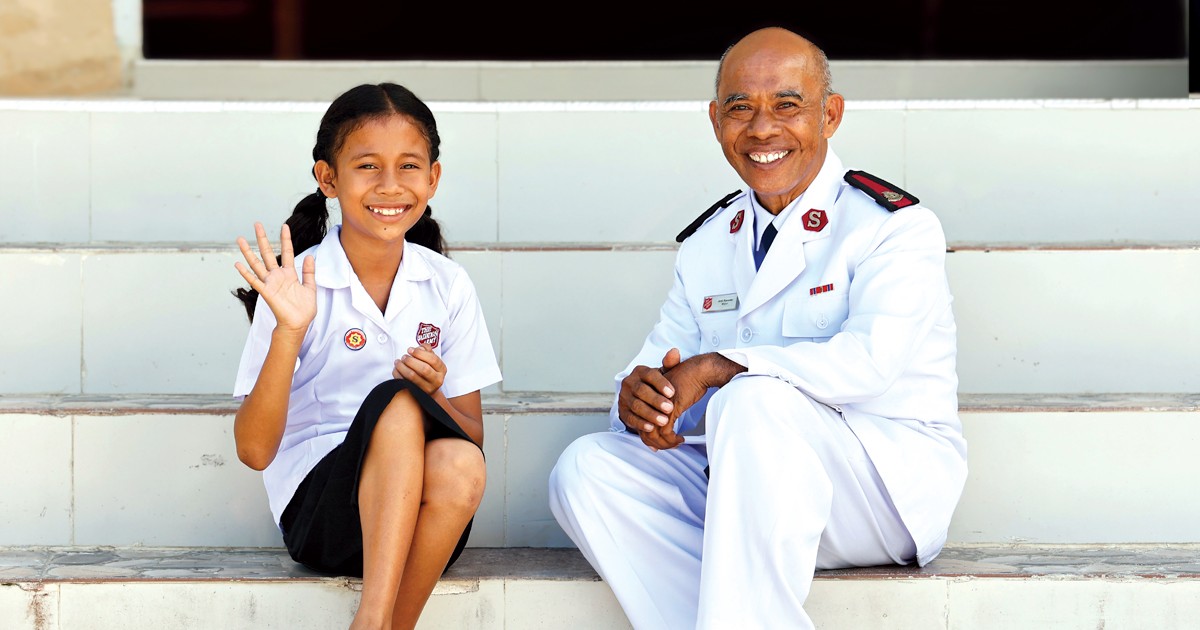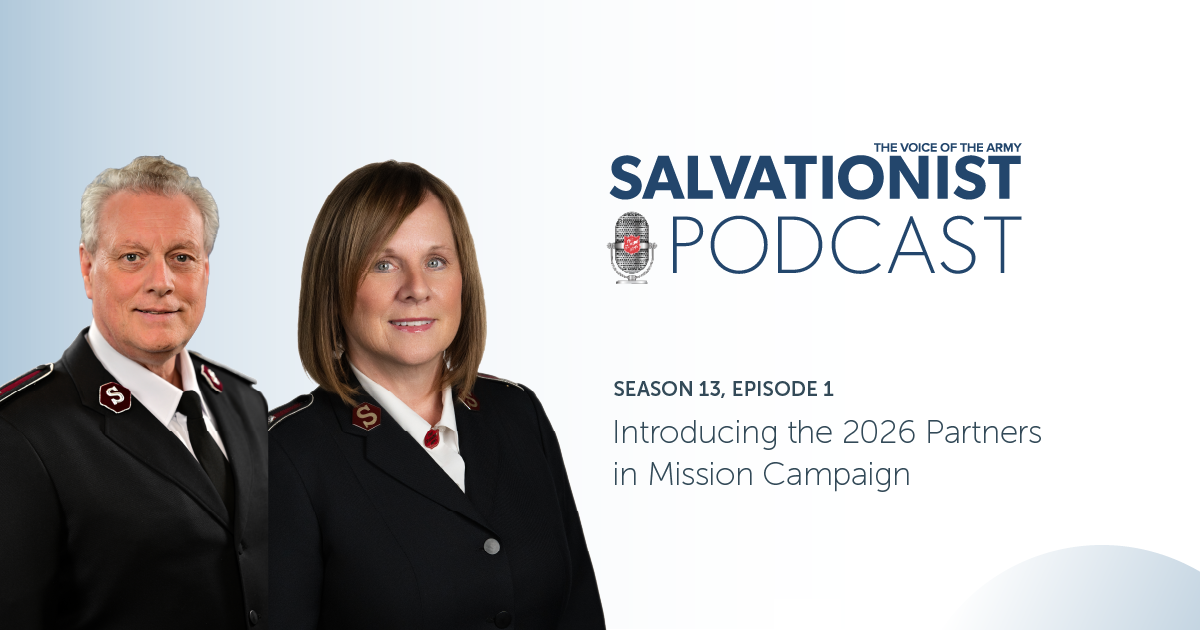 On this World Day of Prayer, Salvationists are encouraged to pray for the people of Papua New Guinea. The women of Papua New Guinea welcome us to a land of many languages, cultures, traditions and beliefs. Within this context, the Christian community draws deeply upon the New Testament assurance, “In Christ, there are many members, yet one body.”
On this World Day of Prayer, Salvationists are encouraged to pray for the people of Papua New Guinea. The women of Papua New Guinea welcome us to a land of many languages, cultures, traditions and beliefs. Within this context, the Christian community draws deeply upon the New Testament assurance, “In Christ, there are many members, yet one body.”
Though many of its communities experience isolation due to rugged terrain, there is unity in diversity. The women say, “By God's grace we are able to be united.” They invite us to join them in celebrating their unity in Christ, where diverse communities are of one heart and soul, and where the Body of Christ unites to overcome evil with good. The women plainly name the violence that plagues their society. They name the differences that become divisions in their churches. They name personal selfishness as a bondage that traps us individually and diminishes our capacity for living in unity.
We know in our hearts how we, too, are a troubled society, a repentant church and prodigal children. As we observe WDP 2009, millions of God's people are suffering from violence, exploitation, poverty, hunger and disease.
WDP's motto, “Informed prayer leads to powerful action,” affirms that prayer and action are inseparable and that both have immeasurable influence. We encourage you to begin thinking about actions that you can take to further support the 2009 theme, which calls us to bring our gifts together for the good of all. We are called to unite as the body of Christ to fulfill his mission on earth, to partner with each other so that we can overcome evil with good and bring about reconciliation in our families, countries and the world.
 Prayer Focus
Prayer Focus
Our prayer focus is on indigenous women and children's concerns as their communities struggle to maintain their history and culture in an ever-changing world. Let us think of:
• PNG's Babies and young children who are dying at high rates leaving communities to struggle with the cause of all these deaths.
• Violence against women, a longtime issue, is now being challenged by women in order to meaningfully live and take care of their children.
• Oil companies and corporations reaping benefits from Papua New Guinea's natural resources while continuing to exploit the land and its people.
• Environmental degradation and climate change impacting Papua New Guinea's islands which will soon force indigenous people to move from one island to another seeking safer ground.
Additional Facts
The independent state of Papua New Guinea consists of more than 600 islands lying just below the equator on the western side of the Pacific Ocean. The second largest country in the South Pacific, one of Papua New Guinea's most spectacular features is its immense variety of landscape.
From the Highlands Region with its wide ridges of rugged mountains, to its Northern coastlines endowed with remarkable sandy beaches, coral reefs and rich maritime life, to the New Guinea Islands Region with a plethora of geothermal springs and active volcanoes, Papua New Guinea is the land of the unexpected, a land of great natural wealth and astonishing nature.
PNG has been described as a "mountain of gold floating on a sea of oil." Although described as poor by United Nations findings, the country is full of natural resources such as gold, silver and natural oil and gas which are all currently being mined and are in production.
Land is the most important resource and an overwhelming majority of people's lives revolve around land. While the majority of Papua New Guineans depend on semi-subsistence agriculture for their livelihood, there are increasing numbers of people who earn a living from operating small scale informal businesses in the urban areas.
Papua New Guinea has one of the most diverse indigenous populations in the world. More than 800 languages are spoken between several thousand separate communities. This diversity is described well in a Papua New Guinean folk saying: “For each village, a different culture.” Though much of PNG's communities have experienced isolation due to its rugged terrain, Papua New Guinea continues to experience the spirit of unity in diversity.
As we begin our journey with the women of PNG, we learn about the intricate cultures and social challenges including a worsening violence against women and children, the breakdown of the family structure, a HIV/AIDS epidemic and chronic law and order and land tenure issues. We will ask and seek answers to questions about possibility and justice in PNG. On Friday, March 6, 2009, we welcome the Worshipping Community to join the women of Papua New Guinea.
Let's turn our prayers into action.
About the World Day of Prayer
The World Day of Prayer is a global ecumenical movement which brings Christians of many traditions together to observe a common day of prayer each year. Through preparation and participation in the worship service, we can come to know how our brothers and sisters of other countries, languages and cultures understand the Biblical passages in their context. We can hear their concerns and needs and can feel ourselves in solidarity with them as we pray with and for them. In this way, it is possible to enrich our Christian faith as it grows deeper and broader in an international, ecumenical expression.
The motto of the World Day of Prayer movement is Informed Prayer and Prayerful Action. Through our participation in the World Day of Prayer, we affirm that prayer and action are inseparable and that both have immeasurable influence on the world.
 About the 2009 WDP graphic
About the 2009 WDP graphic
Bilums are hand-woven bags or baskets which are very common and widely used among Papua New Guinean societies. They are very strong and used to carry everything from food to a baby. Where cultures are so diverse, this simple string bag is common to many.
The WDP graphic brings the symbols of the cross and bilum together. By placing the bilum on the cross, the women of PNG seek a unity where they are not merely held together as though they were gathered into a string bag. They seek a vibrant unity where love is genuine, and where the many, many communities of Papua New Guinea are of one heart and soul.









Leave a Comment